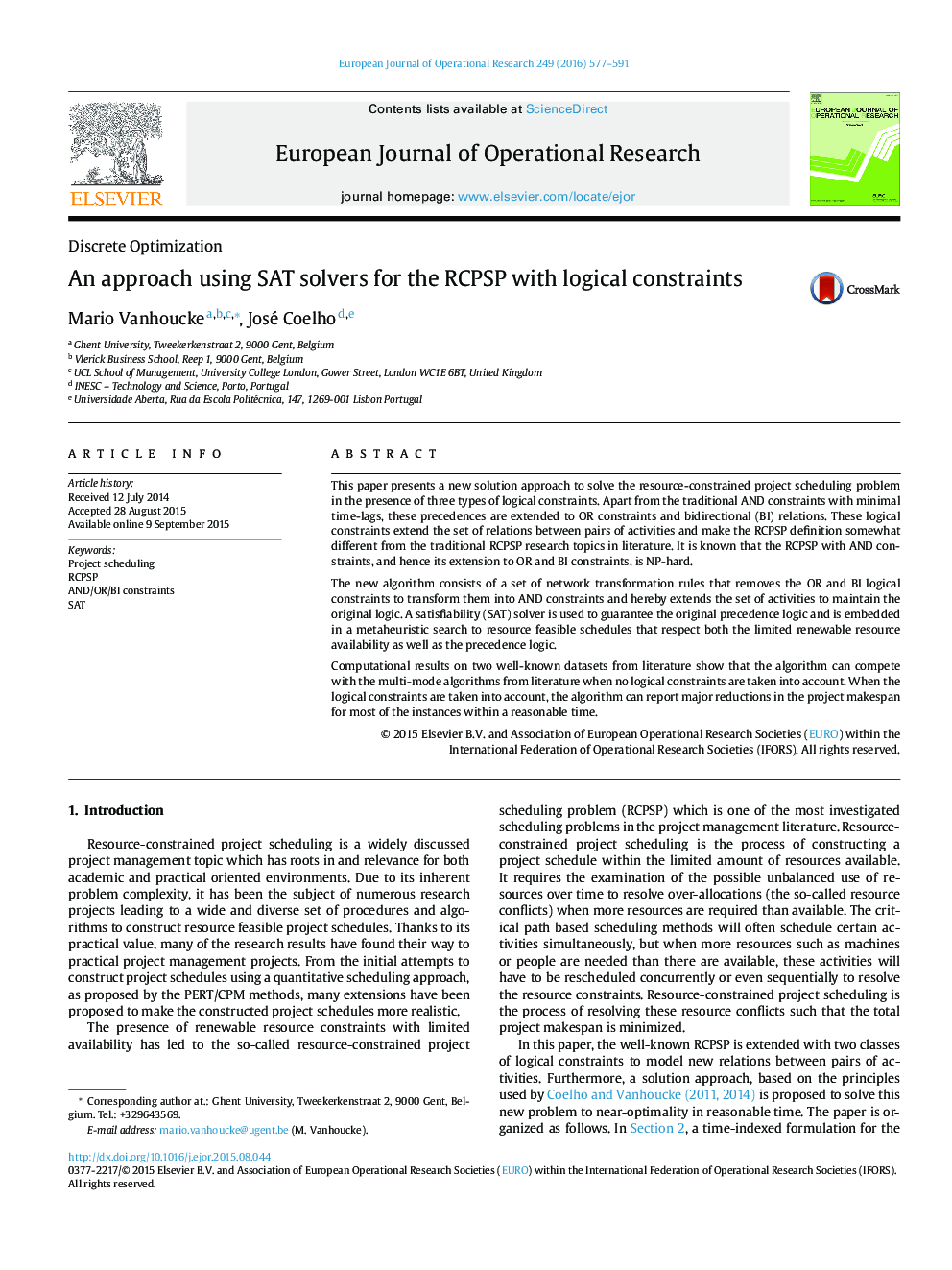| Article ID | Journal | Published Year | Pages | File Type |
|---|---|---|---|---|
| 480731 | European Journal of Operational Research | 2016 | 15 Pages |
•A new methodology is presented to add logical constraints in project scheduling problems.•Network transformations are used to solve the problem efficiently.•A boolean satisfiable solver guarantees that logical conflicts do not occur.
This paper presents a new solution approach to solve the resource-constrained project scheduling problem in the presence of three types of logical constraints. Apart from the traditional AND constraints with minimal time-lags, these precedences are extended to OR constraints and bidirectional (BI) relations. These logical constraints extend the set of relations between pairs of activities and make the RCPSP definition somewhat different from the traditional RCPSP research topics in literature. It is known that the RCPSP with AND constraints, and hence its extension to OR and BI constraints, is NP-hard.The new algorithm consists of a set of network transformation rules that removes the OR and BI logical constraints to transform them into AND constraints and hereby extends the set of activities to maintain the original logic. A satisfiability (SAT) solver is used to guarantee the original precedence logic and is embedded in a metaheuristic search to resource feasible schedules that respect both the limited renewable resource availability as well as the precedence logic.Computational results on two well-known datasets from literature show that the algorithm can compete with the multi-mode algorithms from literature when no logical constraints are taken into account. When the logical constraints are taken into account, the algorithm can report major reductions in the project makespan for most of the instances within a reasonable time.
